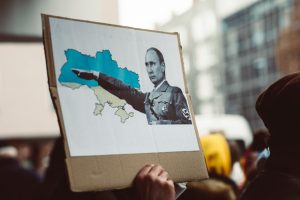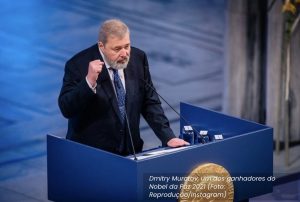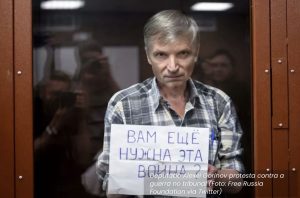London – A commission of independent UN rapporteurs issued a joint statement in Geneva calling on the government of Vladimir Putin to end the restriction of civil space in Russia, including freedom of the press, freedom of expression and the right to peaceful assembly by civil society.
It was stated that “For the last 10 years, Russia has been systematically suppressing civil society in the country,” and that the process intensified after the start of the war.
The new fake news law, approved by Putin in March, and other crackdowns on freedom of expression are being used to silence activists, journalists and civil society representatives, according to rapporteurs.
Suppressing civil society in Russia violates human rights
(13) The appeal made on Wednesday had no effect. The next day, President Vladimir Putin, based on a decision of the Prosecutor General of the Russian Federation, signed a decree that increased the government’s power over the foreign press, allowing the closure of the offices of media companies and the annulment of the identity of journalists.
Demanding the government to end restrictions, the rapporteurs stressed that freedom of expression and peaceful assembly are human rights.
They condemn the stigma of civil society actors, including human rights defenders, who are classified as “foreign agents” because they receive some form of funding from abroad. When listed by the Department of Justice, individuals or organizations are subject to a number of regulations that make it difficult for them to act.
According to the UN, NGOs are harassed and some are forced into closure by the Russian authorities.
The group says the situation has worsened since the Russian invasion of Ukraine on February 24. The commission said more than 16,000 people took to the streets to protest aggression in Russia, and many were arrested for participating in peaceful demonstrations.
UN experts say Russian police used excessive force against protesters and human rights activists. There were also reports of insults and threats.
“Those trying to provide legal aid were prevented from entering the police station or the courts by law enforcement,” the commission said.
The ‘fake news war’ affects newspapers and platforms
According to the UN, more than 60 cases of crime were considered a “fake news war” and at least seven were discredited and blocked.
Amendments to the Criminal Code made it possible to criminalize acts, due to an amendment adopted on March 4, 2022, a week after the attack on Ukraine.
Also Read | Russian fake news law silences digital platforms, local media and global news companies
In the statement, they said that most of Russia’s independent entities were voluntarily shut down to avoid prosecution. Some have been shut down by dozens of other international broadcasters.
More than 20 vehicles stopped working or suspended their work in the country. These include Nobel Peace Prize-winning newspaper Novaya Gazeta, the latest independent TV channel Dozhad and Moscow radio station Eco.
Also Read | Russian journalist fined for threatening public order, even though Nobel Peace’s website was shut down
Last week there was the first conviction based on fake news law.
deputy Alexey Gorinov He was sentenced to seven years in prison for opposing the children’s competition project proposed by the local community council on the grounds that children are dying in Ukraine and that efforts should be made to end the war.
Also Read | Russian lawmaker first jailed for criticizing war under Putin’s fake news law
The restriction of freedom of expression also affected citizens. After the outbreak of war in Ukraine, Russia blocked digital and social media platforms such as Twitter, Facebook and Instagram. Meta company, which owns the last two, was designated an extremist organization and banned from the country.
The committee emphasized that “many other companies, including the international technology sector, have withdrawn from the market due to reputational risks.
As a result, many human rights activists and defenders are denied access to an information and communication structure vital to their work.
Many defenders have left the country, fearing for their safety, and those who choose to stay are under great pressure.”
Foreign agent law, a tool to suppress civil society
On April 8, 2022, the Russian Ministry of Justice confirmed that it had canceled the registration of 15 subdivisions of foreign non-governmental organizations in Russia, without providing further details.
The lack of transparency is “deeply worrying”, according to UN rapporteurs. In late June, the Duma, the lower house of Parliament, passed a law making it easier for officials to appoint “foreign agents” to organizations.
Since 2012, the term has been used only to classify companies or individuals who engage in money-financed political activities abroad.
In a statement signed by 12 special rapporteurs, including the special rapporteur on freedom of thought and expression, including human rights lawyer Irene Khan from Bangladesh, the group urges Russia to refrain from curbing civil rights in the country.
Experts said they will continue dialogue with the government to express their concerns about the state of freedom in Russia.
read it too
source: Noticias
[author_name]


